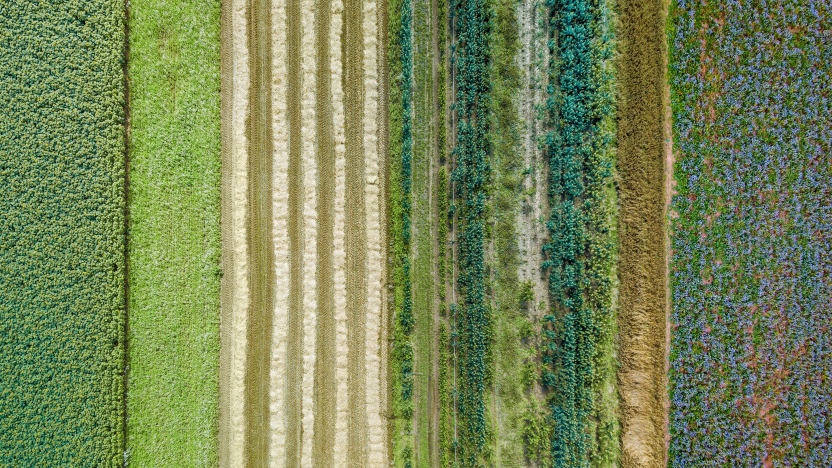New agreement strengthens EU Geographical Indications

Negotiators from the European Parliament and the Council of the EU have reached a political agreement on the reform of EU Geographical Indications for agricultural products, wines and spirits. Florence Chapin outlines its implications.
On 24 October 2023, after approximately two years of negotiations, the European Parliament and the Council of the EU reached a political agreement to reform European rules for Geographical Indications (GIs). The result is a single regulation covering agricultural and food products, wines and spirits.
EU Geographical Indications in a nutshell
Geographical indications protect product names that denote production characteristics or levels of quality or reputation linked to a specific production area. The system guarantees to consumers that the product has been produced in the region of origin to high standards and helps the producers protect their products from counterfeiting or fraud. in the EU, protected designations of origin (PDOs) and protected geographical indications (PGIs) are used for agricultural and wine products, while geographical indications (GIs) are used for spirits.
As of 1 October 2023, 3,552 names have been registered under the scheme: 1,656 names of wines, 1,634 names of foodstuffs and agricultural products, and 262 names of spirit drinks. In February 2023, the EU Commission registered the 3,500th geographical indication.
Reform of rules relating to EU Geographical Indications
The new regulation aims to strengthen the EU's high food quality and standards and ensure that our cultural, gastronomic and local heritage is preserved and certified as authentic within the EU and around the world.
Among the changes to be introduced by this new regulation, the following are of particular note:
- simplified registration procedure to reduce the waiting time between application and registration,
- increased protection of GIs online,
- strengthened role for producer groups, and
- the ability to introduce sustainability criteria into the specifications.
In addition, the different rules relating to procedures and protection of EU Geographical Indications have been merged for the three sectors (food, wine and spirits), resulting in a single, simplified procedure for registering GIs for EU applicants and third countries. This simpler legal framework, accompanied by shorter registration deadlines, should increase the attractiveness of the systems for producers, particularly in countries with fewer GIs.
Following the introduction of the regulation, the time limit for examining applications for registration and modification of GI specifications must not exceed six months. However, there is a possibility to extend this by five months if the application is incomplete.
Implications for existing GIs
The new rules will strengthen the protection of GI products used as ingredients in processed products, as well as GI products sold online. The new regulation will also protect the names of products benefiting from GIs in the domain name system, obliging EU member states to block any domain names likely to infringe on a GI in their territory.
Advantages for producer associations
This agreement aims to give a stronger role to producer associations by enabling member states to provide recognised producer associations with greater powers and responsibilities. In addition, the agreement aims to maintain existing provisions on producer organisations already recognised in certain member states, while leaving other member states free to set up their own new recognition system.
Addition of sustainable practices
Another advancement in this agreement concerns the recognition of sustainable practices. For agricultural products and wines, producer associations can agree on sustainability practices that go beyond European or national standards. Producer associations could, where appropriate, present these practices in sustainability reports.
A producer group may even decide to make certain sustainable practices mandatory for its products. In this case, they must appear in the product specifications. Voluntarily, producers can also write a sustainability report to be published by the European Commission.
Producers with EU Geographical Indications can promote their environmental, economic or social sustainability actions, including animal welfare. The text adopted by the co-legislators draws up a non-exhaustive list of sustainable practices to encourage producers to adopt them. These practices will help producers better protect natural resources and rural economies, preserve local plant varieties and animal breeds, conserve the landscape of the production area and improve animal welfare.
Who is responsible for granting EU Geographical Indications?
It was decided under this agreement that the European Commission should retain its unique competence to examine GIs and that the European Intellectual Property Office (EUIPO) would only provide technical assistance on a purely administrative basis (e.g. alert system, register management).
Compliance with GIs remains the responsibility of EU member states, including monitoring the appropriate use of registered terms and preventing the fraudulent production, sale and use of European Geographical Indications. The Commission retains its role in registering, amending and cancelling all registrations.
When do the new rules for EU Geographical Indications enter into force?
While the date of its entry into force is still to be confirmed, this agreement includes many promising objectives and will likely increase the use of GIs throughout the EU, bringing benefits to rural economies and protecting the EU's gastronomic heritage around the world.
We will continue to monitor the passage of the new regulation to alert you of its date of entry. You can also find out about the new GI system in the UK in our recent article 'Welsh Whisky joins UK GI scheme'.
To find out more about EU Geographical Indications and trademark protection, please speak to your Novagraaf attorney or contact us.
Florence Chapin is a French and European Trademark Attorney specialising in IP protection for wine and agricultural products.